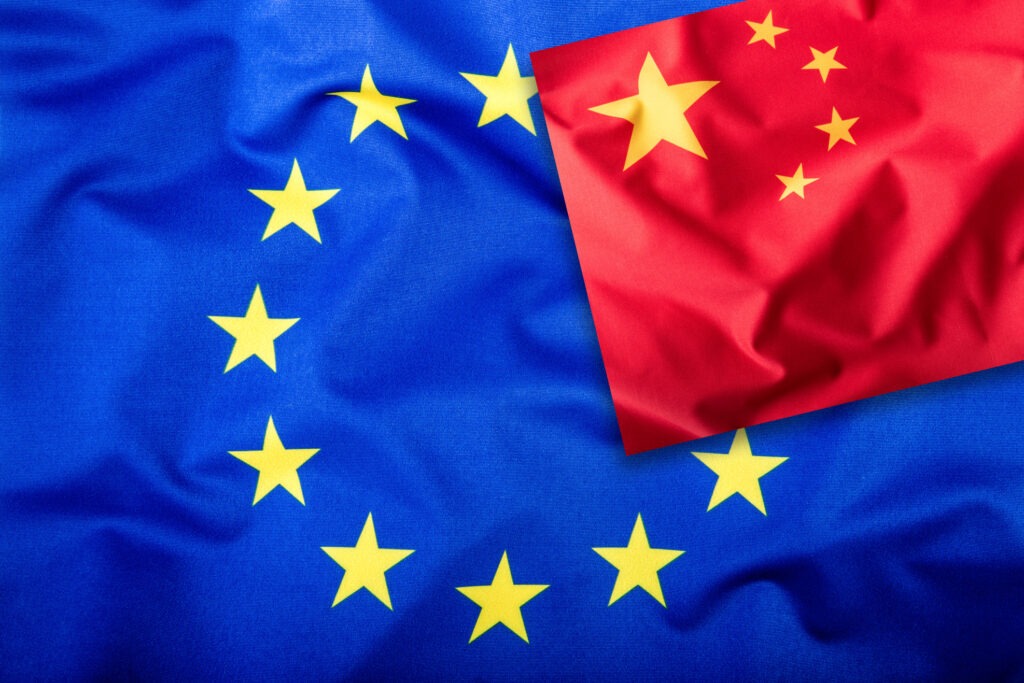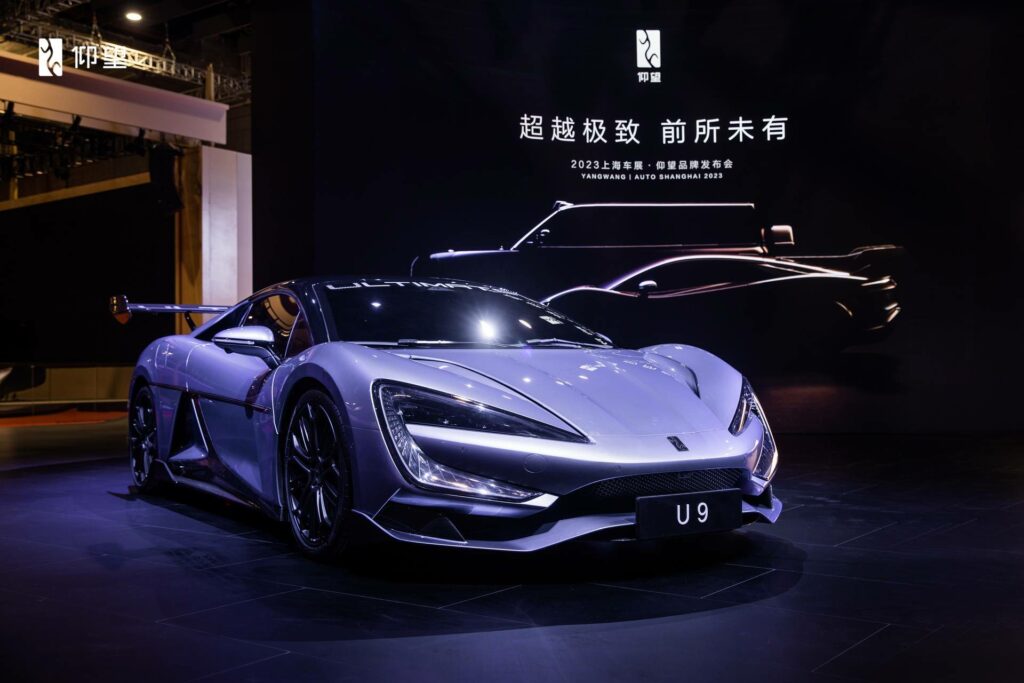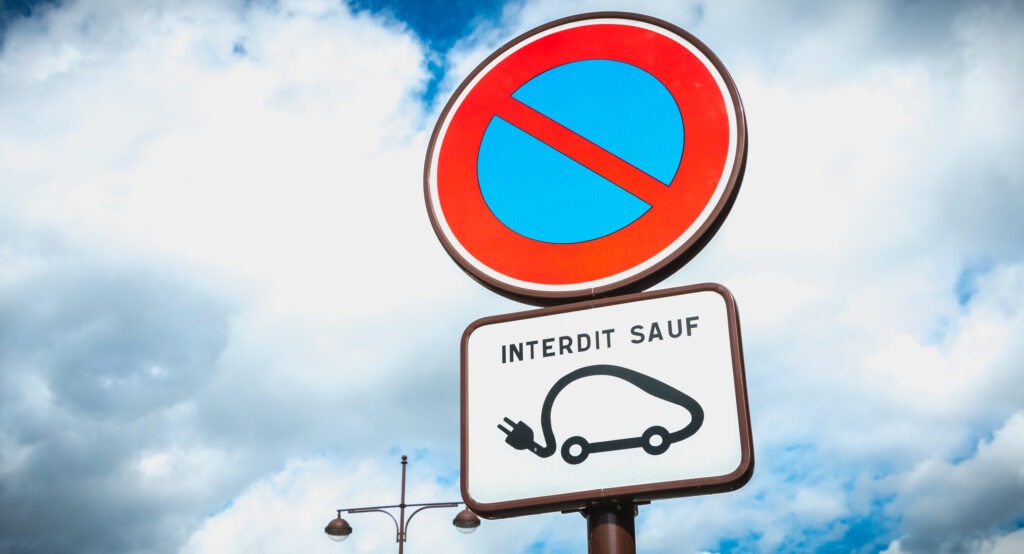China’s impact on the European automotive industry
15 June 2023

European carmakers are trying hard to raise their market shares in China, while Chinese manufacturers are increasingly venturing into Europe. While this dynamic comes with plenty of opportunities, it also presents challenges to the European automotive industry. Autovista24 journalist Rebeka Shaid investigates.
A recent report by Allianz Trade found that European carmakers could collectively lose more than €7 billion in annual net profit by 2030, mainly because Chinese manufacturers keep increasing their domestic market shares. This could lead to sales by European car brands in China falling drastically as homegrown rivals push ahead with new models catered to the local taste.
Chinese cars, especially battery-electric vehicles (BEVs), are technology-oriented, which is something local consumers actively look for. They are affordable too, with companies continuing to join the country’s price war. While European manufacturers have realised the need to catch up to suit local preferences, in Europe they are also facing growing competition from Chinese entrants.
Europe-made cars substituted by Chinese imports?
Volkswagen (VW) Group, which heavily relies on China for sales and profits, told Autovista24 that it welcomes this type of competition. ‘A challenging competitive environment drives innovation. Competition is part of our daily business,’ the German carmaker said.
While VW Group might look to be unphased by these new players on their home turf, the past few years have shown that Chinese carmakers are gaining ground in Europe. BYD is among them, as well as electric-vehicle (EV) innovators including Nio, which stands out from the crowd with its battery-swapping technology.
‘So far, Chinese competitors have entered the European car market relatively sluggishly,’ Gregor Sebastian, an analyst at the Berlin-based Mercator Institute for China Studies (MERICS) told Autovista24. ‘But heavyweights like BYD and EV startups like Nio are ramping up their exports and sales channels in Europe, and competition is likely to heat up in the months to come,’ he added.
Europe is not an easy market to break into as a newcomer. But manufacturers such as Great Wall Motors (GWM) scored five-star ratings in the notoriously strict safety tests run by Euro NCAP, news that helped increase Chinese brand recognition.
Additionally, three of Europe’s best-selling BEVs were Chinese imports in 2022 – which could pose another threat to the European car industry. ‘As BEVs eventually grow to account for all new car sales in Europe, Europe-made cars are likely to be substituted by those made in China – irrespective of whether they are manufactured by a Chinese, American or European company,’ Allianz Trade said.
This is where China’s leading position on the EV market comes into play. EV-volumes reiterated that China is host to the largest EV production base. Around 6.7 million units were made in the country last year, equivalent to 64% of the global volume. Of these, 580,000 EVs were exported, mostly by Western brands, with the main exporters including Tesla, SAIC, Dacia, Geely-owned Polestar, Volvo, and Lynk & Co, as well as BMW and BYD.
Competitive edge
What becomes clear is that China holds a competitive edge in many areas of the BEV value chain. As a dominant force in the battery market, the country also has easy access to critical raw materials. Thanks to years of generous incentives, such as government subsidies and tax breaks, a slew of local EV brands has emerged in China that are ready to dash into major automotive markets.
This year’s Shanghai Auto Show underlined the strengths of Chinese carmakers, serving as an eye-opener to Western brands. Carmakers from Geely, Xpeng, and Zeekr showcased their new models, impressing spectators with advanced technologies including connectivity, autonomous driving, and top-notch batteries.
In periods of more strained geopolitical relations between Europe and China, analysts suggest that European policymakers should build reciprocal trade terms. This could include allowing Chinese investments in European car assembly. The benefits, observers say, would be mutual and help stabilise local supply chains.
Chinese brands are certainly interested in building a lasting footprint in Europe. BYD, which recently dethroned VW Group and became the top-selling car manufacturer in China, is launching two new models in Europe this year. The company is reportedly eager to build a European manufacturing site and is scouring the continent for a suitable location.

There are clear paths Chinese carmakers are following in Europe to expand their market reach. This includes fostering close relationships with local dealerships and suppliers. They are also adjusting their pricing strategy and are eager to compete with legacy carmakers in the region.
Building local vehicle plants would be the next logical step for these companies, helping them save on costs. At the same time, it would open opportunities for European suppliers as they could get more involved in Chinese automotive supply chains.
But there are other ways for Asian companies to increase their mark. MERICS found that Europe plays a central role in China’s global EV expansion. Battery investments are now the backbone of Chinese investments in the region, with more automotive greenfield projects planned in Europe’s growing EV landscape.
Western China strategy
In light of these developments, Western brands are adjusting their Chinese market strategies, although some are more eager than others. US manufacturer Ford plans to cut back its investment in China due to the increasing competition from local manufacturers.
‘If you just reinvest in a new cycle of EVs in China, there is no guarantee, or no data, that would suggest the western companies win,’ Ford CEO Jim Farley told the Financial Times. Meanwhile, German carmakers appear ready to reinvest, not least because China is a key market for BMW, Mercedes-Benz, and VW Group.
‘China remains a crucial production and sales hub for German carmakers. However, with China’s shift towards EVs, it is no longer an easy cash cow for German producers,’ Sebastian told Autovista24. ‘To retain Germany’s high market share in China, German carmakers are doubling down on their already substantial investments in the market. They also regard China as a source of innovation and are strengthening their research and development footprint in the country.’
VW Group is planning a sizeable €1 billion investment in the country that will establish a new centre for development, innovation, and procurement for EVs. This will rely on cutting-edge technologies from local suppliers, with the aim of reducing development times for new products and technologies by around 30%. It will also help the company tailor EVs more quickly to the needs of Chinese customers.
The carmaker told Autovista24 that China is a significant growth market and innovation driver for electromobility. A quarter of all cars sold in China in 2022 were EVs, with the company expecting this figure to rise to 50% in the coming three years. By 2030, the German manufacturer aims to offer more than 30 BEV models across all brands to Chinese consumers.
The latest investment is part of VW’s ‘in China for China’ approach. It comes after VW Group’s software unit Cariad partnered with Horizon Robotics, a Chinese provider of computing services for smart vehicles. The joint venture is aimed at speeding up the local development of autonomous driving and advanced driver-assistance systems (ADAS) for the Chinese market.
‘In order to leverage the dynamic growth and high speed of innovation even more effectively, we are significantly expanding its development expertise “in China, for China” to strengthen the pace of innovation, technological localisation, customer centricity and resilience,’ the company said.
Local for local approach
Joint ventures are a crucial part of Western carmakers’ Chinese operations. BMW’s 20-year-old Chinese joint venture BBA recently announced it would start producing its Neue Klasse EVs in the country from 2026. As part of this, the company is investing ¥10 billion (€1.3 billion) in a new location to manufacture battery cells. It is a strategic move, as BMW told Autovista24.
‘China — as for other global industrial companies — is important to the BMW Group. We have a long and successful history in China and are looking to the future with confidence, based on the principle of “production follows the market.” This is reflected in our two joint venture agreements with Chinese companies as well as our development site there. The Chinese market is the best-selling market for the BMW Group and we see further potential.’
BBA produces seven model ranges, including BEVs, plug-in hybrids (PHEVs) and internal-combustion engines (ICEs). The company’s supplier network in China includes 430 local suppliers as part of its ‘local for local’ approach.
Yet, some joint ventures are more successful than others. Stellantis last year decided to end its joint Jeep operations with the GAC Group in China. Ever since, there has been speculation that the car giant could abandon manufacturing cars in China altogether. Stellantis CEO Carlos Tavares had previously said he was worried about political sanctions in the country.
‘There is growing political interference in the way we do business as a Western company in China,’ Tavares told the Financial Times last year. ‘The political agenda has been increasing by the day.’
Lines between politics and business are increasingly getting blurred, with tensions between Europe and China tightening. Criticism over human rights abuses is also getting louder, with EU politicians trying to push companies to cut their dependence on China.
In May, VW’s shareholder meeting was disrupted by activists making claims of human rights abuses. Investors have since called on the company to request that its joint-venture partner, SAIC, undergo an independent audit of its plant in the Xinjiang province.
‘German carmakers increased investment, at a time when geopolitical tensions are at an unprecedented high, is not without risk but could help them retain their global competitiveness,’ said Sebastian.
While VW China chief Ralf Brandstätter said the company saw no evidence of human rights violations at its plant, the issue highlights the turbulent relations between China and Europe that does not leave the automotive industry unaffected.



